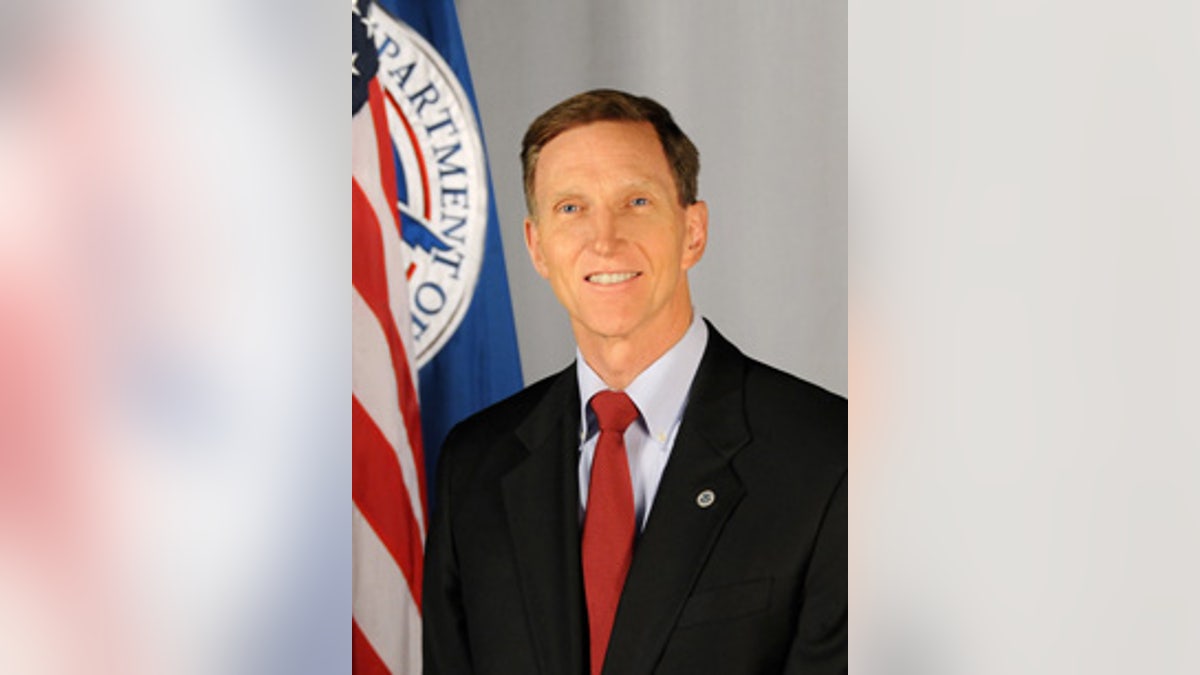
TSA's John Pistole
Trying to quell concerns over his decision to let security officers vote on whether they want unions to represent them, Transportation Security Administration chief John Pistole told lawmakers Thursday he would be "willing" to fire TSA employees en masse should they go on strike or cause a slowdown in operations.
In a "determination" released Friday, Pistole said he has "given careful thought to the question of union representation" and would allow a vote "under specific conditions that protect security," requiring that any bargaining be at the national level and restricted to only certain employment issues, including attendance guidelines, transfers and awards. Officers could not bargain on security policies and procedures, pay or job qualifications, and would be "strictly" prohibited from "striking or engaging in work slowdowns of any kind," according to TSA.
But during a House hearing Thursday on Capitol Hill, Rep. Mo Brooks, R-Ala., noted that telling officers they can't strike or engage in work slowdowns is not the same as "assuring" they can't. Brooks asked Pistole if he'd be "willing to fire en masse" should many officers violate the bargaining rules.
Pistole was at first hesitant to answer the question, saying of work slowdowns and strikes that "none of those are possibilities or options."
"Any employee could be fired for doing those things," he said, adding that he "can't envision" them happening.
Pushed by Brooks over whether he would be willing to fire employees "en masse" should they strike or engage in a work slowdown, Pistole ultimately said, "I'm willing to, yeah."
Republicans on the House Homeland Security Committee's transportation subcommittee seemed skeptical about Pistole's decision, but Democrats called it "the right thing."
"Collective bargaining does not diminish our security," said Bennie Thompson, D-Miss., the ranking member of the full committee. "Collective bargaining can improve workforce morale and productivity."
In fact, Pistole said his agency "ranks poorly" when it comes to employee morale, with a recent government study finding morale at TSA among the worst in federal government.
Pistole, citing private conversations with TSA officials, said he believes there's "a great deal of frustration" among TSA ranks over inconsistently-applied policies, and he said there's "a lot of distraction among the workforce with these issue."
Collective bargaining can help "relieve" such issues and "preserve TSA's capability and flexibility to respond to threats," he said.
Democrats noted that officers with several other federal agencies, including Customs and Border Protection, Immigration and Customs Enforcement, Pentagon police and the U.S. Capitol Police, already have collective bargaining rights.
For TSA, Pistole came to his decision after reviewing employee data, engaging in a "broad range of conversations," obtaining input from employees, and talking with current and former leaders of law enforcement agencies whose officers are already unionized, according to TSA.




